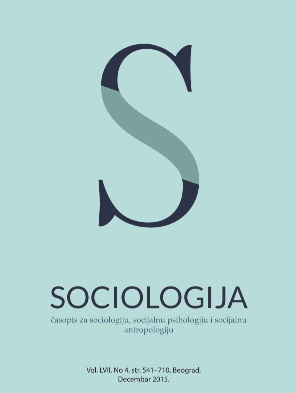INFORMAL NETWORKS AND INTERSTITIAL ARENAS OF POWER IN THE MAKING OF CIVIL SOCIETY LAW IN SERBIA
INFORMAL NETWORKS AND INTERSTITIAL ARENAS OF POWER IN THE MAKING OF CIVIL SOCIETY LAW IN SERBIA
Author(s): Marek MikušSubject(s): Civil Law, Civil Society, Social Norms / Social Control
Published by: Sociološko naučno društvo Srbije
Keywords: civil society; democracy; informality; law; Serbia; the state
Summary/Abstract: This paper adopts an anthropological perspective on law to examine the social processes surrounding the making of a set of recent civil society laws in Serbia. In line with the dominant liberal assumptions about civil society involvement as a way of making policy- and law-making more representative and democratic, there has been significant civil society participation in these legal reforms. Their stated aim was to bring greater ‘efficiency’ and ‘transparency’ to the activities of civil society and its relationships with the state. They were a part of the greatly intensified law-making activity in Serbia that reflects an ideology of legalism linked to the global neoliberal turn to depoliticised ‘governance.’ My analysis reveals that these reforms contradicted their own objectives since they were consistently dominated by a small and relatively stable network of organisations and individuals connected by informal relationships. It also shows that, through their protracted domination over the making of civil society law, these actors created a new political arena in the interstices of the state and civil society in which they pursued their own political and ideological agendas. These findings challenge the assumptions about the relationship between civil society participation and democratisation as well as the ideology of legalism.
Journal: Sociologija
- Issue Year: 57/2015
- Issue No: 4
- Page Range: 571-592
- Page Count: 22
- Language: English

